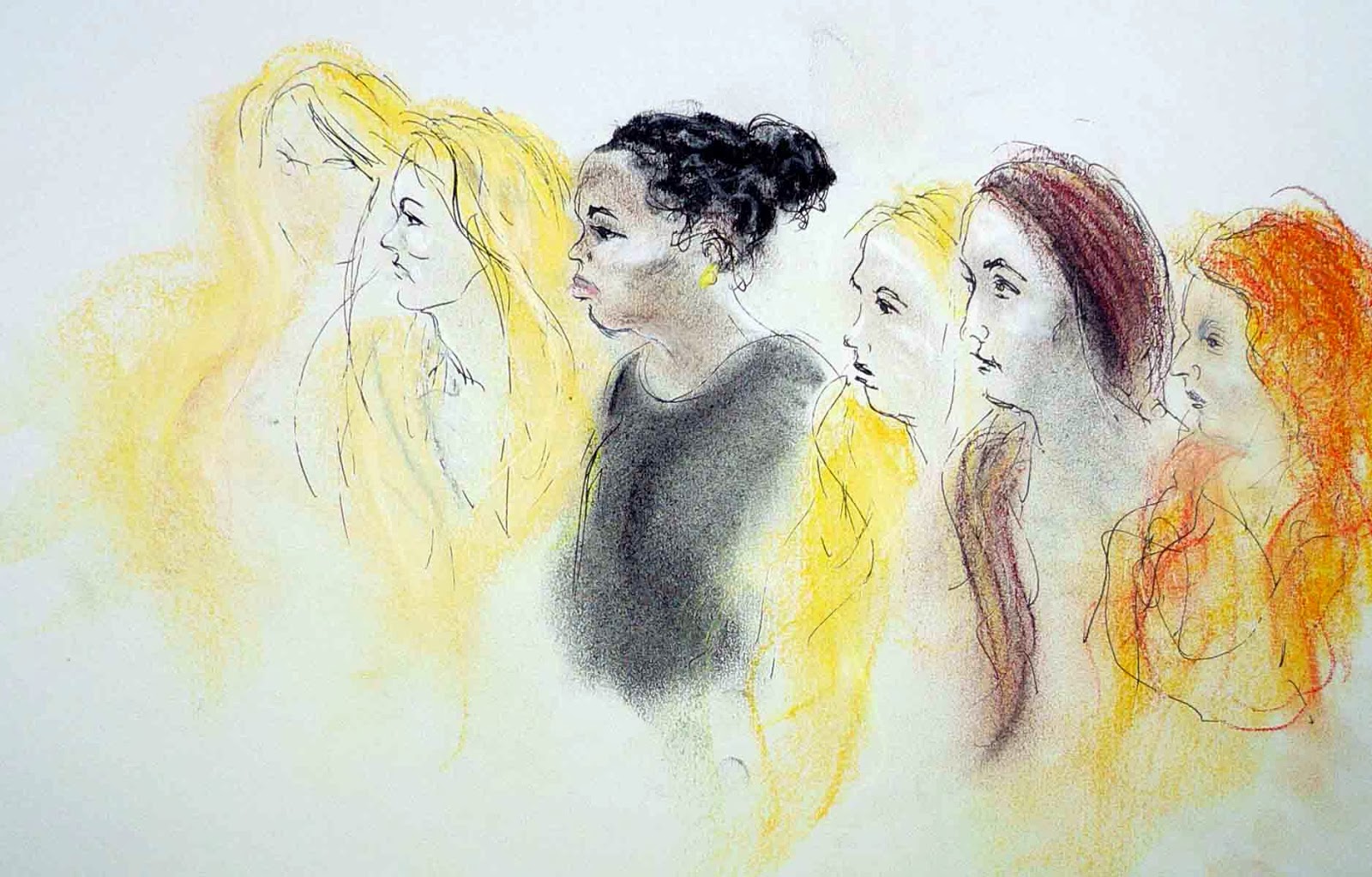‘The law isn’t working and change isn’t happening fast enough’

The public gallery in the Supreme Court: Sketch by Isobel Williams (www.isobelwilliams.org.uk)
The UK’s legal system was currently failing its women, according to the findings of a report by the Fawcett Society on sex discrimination law. The report features the conclusions drawn by the group’s Sex Discrimination Law Review Panel made up of a team of legal experts and chaired by Dame Laura Cox, DBE, a retired High Court judge. It was set up to review the UK’s sex discrimination laws in response to ‘Brexit’, and the subsequent concerns of the possible impact on fundamental rights in the UK. It also considered the effectiveness of current laws and which areas were in urgent need of reform.
The findings span across issues such as sexual harassment in the workplace, violence against women and girls and misogyny as a hate crime. It was revealed in the report that half of all women have experienced sexual harassment at work, and almost two thirds of women of all ages (64%) have experienced unwanted sexual harassment in public places. In sexual offence cases, the requirement to give prior notice when a victim’s sexual history is to be relied on in court is often bypassed, meaning that the victims are often blindsided in the courtroom when it is raised. Despite legal aid being somewhat restored in cases of domestic violence, major barriers still persist for those who are in the ‘legal aid gap’ deemed financially ineligible for legal aid but still unable to pay for legal fees, especially with the number of non-profit legal advice centres reducing dramatically.
The lack of accountability for these crimes committed against women, as well as the procedural flaws that prevent women from coming forward and accessing justice, are why the chief executive of the Fawcett Society, Sam Smethers, began the report with the damning: ‘The law isn’t working and change isn’t happening fast enough.’
In order to bring about this change, the report calls for a number of specific changes to the legal system.
These include strengthening the laws on sexual harassment at work to protect women from harassment by third parties, making ‘up-skirting’ an offence, making misogyny a hate crime, making any breach of a domestic abuse order a criminal offence and extending protection from pregnancy discrimination to 6 months after maternity leave ends. It also calls for more third-party evidence to be used for domestic violence cases, including evidence collected at the scene and from body-worn cameras, and for the law governing the use of a victim’s previous sexual history in court to be reviewed – and at the very least, for victims to have the right to legal representation if such an application is made. The report also suggests that the Scottish Legal Aid’s Board in setting up Civil Legal Assistance Offices could provide a potential model in England and Wales, in order to increase the provision of free legal advice for those who need it.
Sam Smethers also commented, ‘What we see is a deeply misogynistic culture where harassment and abuse are endemic and normalised coupled with a legal system that lets women down because in many cases it doesn’t provide access to justice.’
‘The evidence we received, of increasing levels of violence, abuse and harassment against women, was deeply disturbing,’ added Dame Laura Cox. ‘A lack of access to justice for such women has wide-ranging implications not only for the women themselves, but also for society as a whole and for public confidence in our justice system.’






